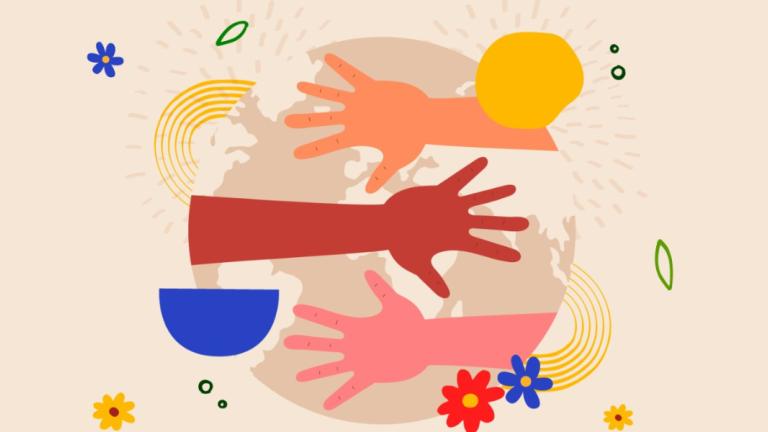
Did you say "Ohoo, until we get to child participation..."?
A child living in an old neighborhood in Istanbul said, "They want to change a place, they say let's paint here. Again, they more or less ask us. They ask us about the color, but if we say no to the painting, will they accept it, maybe they will." (age 12), he conveys our adults' view of child participation, which is the subject of this article, in such a clear and lucid way.
In society at large, children are defined in terms of adulthood as 'inadequate human beings', 'a being that needs to reach adulthood', 'incomplete subjects', 'little people'. For adults, children are beings who are told 'we will decide what is best for you and do what is necessary'. Childhood is always seen as a temporary 'state' associated with the future and is always kept under control for protection.
However, Yaşar Kemal writes in Children are Human Beings: "I do not treat children like children. If I have a relationship, a friendship with a child, then it is my friend and not a child. I do not see them as children. I do not see them as a separate human species. Why is that? I have never believed that children are children, the way people treat them. They are simply human beings."
In child participation, the child is seen as either a 'citizen of tomorrow' or a 'stakeholder of today'. The perspective that sees the child as a citizen of tomorrow is similar to society's view of the child and does not define children as equal individuals supporting their participation, while the perspective that sees them as stakeholders of today recognizes the child's right to a voice and values their participation. However, in practice, it is very rare to come across examples reflecting this perspective. This is because it is challenging for decision-makers to find a common ground for child participation, and they usually make decisions by anticipating the child's needs instead. This may be because it is not clear which children will be involved, how and by what means, through what legal and procedural processes and at what stages, and who will be responsible for monitoring, supervision and feedback. This leads to the stereotype that the involvement of adults is more important than the involvement of children. This stereotype in turn gives children the idea that their opinion will not be heard anyway and that even if it is heard, it cannot change anything.
How can children be involved in decision-making?
Child participation is not a difficult, complex and incomprehensible process. Children's right to participation is just like adults' right to participation, i.e. adult participation is the ability to influence and be involved in decisions, policies, laws or practices that affect their lives, and this is the same for children, but with one difference. Adults are responsible for ensuring that children's right to participation is meaningful and timely. This means that it is important to consider segments of society that lack equal opportunities and resources for meaningful and fair participation. This also includes planning which children with their specific characteristics and abilities can or cannot participate in which phases. Recognizing participation as a right requires understanding that it is not just an outcome, but a process.
We can make child participation meaningful with these simple guidelines:
The environment in which children participate should be appropriate for them
- Where did the children come?
- Is the physical space where we come together with children suitable for children in terms of heights, lighting, ventilation, etc.?
- Is the environment safe?
There should be space for the child's expression
- Are the children ready?
- Have we informed the children about the topic?
- Do we know the children in terms of literacy, disability, whether they like to draw, etc.?
- Have we considered the appropriate medium for each of them?
It should be clear from the beginning where and how the child's views will be conveyed
- Who will listen to the child?
- What do we do with children's views?
- Do children know to whom their views will be presented?
Children's views should have an impact
- How can children's views be taken into account by adults who have the power to bring about change?
- Do we have a plan to pass back to children what we have done with the information we have received from them?
Do children know what can and cannot harm them?
As child participation becomes ingrained in adult minds as a right, the understanding that it is not a reward for children can be understood by children.
Most of the time, children perceive it as 'normal' or 'ordinary' for decisions about themselves and their peers to be made by adults, as illustrated in examples such as "The municipality didn't inform us even a quarter of a gram," (age 12) "They don't inform us..." (age 11), and when referring to local governments asking for their opinions, saying "Don't misunderstand, you'll see it in your dreams." (age 11). Even if they express their views with an understanding of a 'reward' offered by adults, they believe that they cannot change anything, as stated: "A decision made instead of me. I can't intervene in that." (12 years), and therefore feel that they are not taken seriously as children.
For meaningful participation of children, we adults in decision-making positions should be able to sincerely answer "yes" to the following questions:
- Am I ready to listen to children and hear their views?
- Am I willing to take the time to sit around the same table with children and discuss, to build a relationship of equals?
- Am I able to share the power that comes from being a decision-maker with children and do I facilitate this?
- Do I recognize that it is a policy requirement that children and adults share authority and responsibility for decisions?
- Do I value child participation for the development of the child's capacity? (sometimes child participation that does not contribute anything to the child is just the attractive packaging of our work)
- Do I know how to do these things, am I open to learning?
Reminding children that it is not 'normal' for adults to make decisions for them and that it is their right to participate in decisions commensurate with their capacities is also a mechanism to protect children. Because really, "If they ask the children, they will know what is harmful and what is not." (age 13)
For us adults, a willingness to create opportunities and environments where decisions can be made together with children, and then to strive for an equal level of relationship, will be enough to get started. Children are human beings and should be able to live in the present first.
* All children's opinions quoted in the article are based on the author's interviews with children.

STGM Studio
We have good news for CSOs that want to produce video content. In our studio in our office, you can shoot your videos and get editing support.





